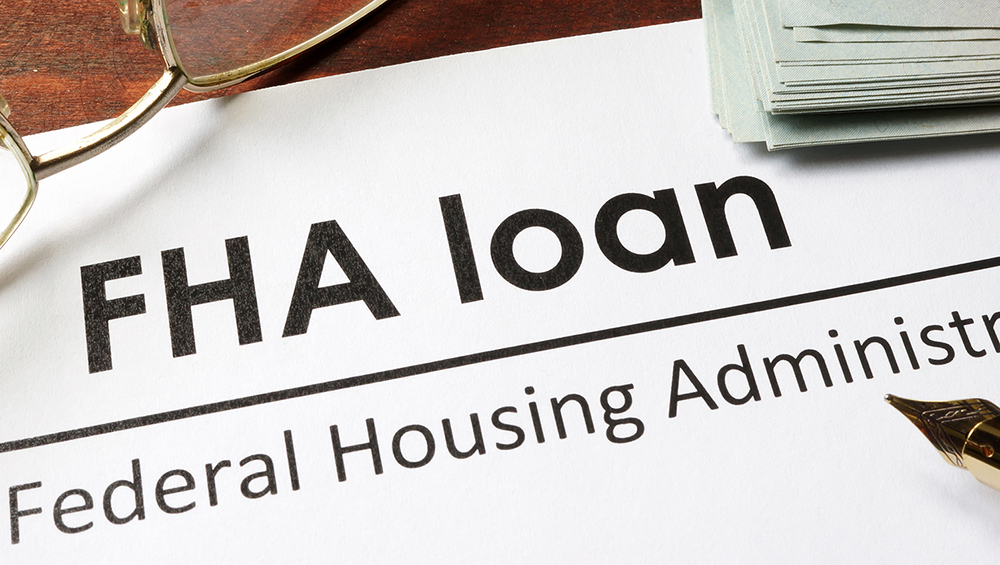An FHA loan is a house mortgage backed by the government– specifically, by the Federal Housing Administration. The term “FHA loan” is in fact somewhat of a misnomer since the FHA does not, in fact, lend money to potential house owners. Rather, it guarantees the loans made by personal loan providers. So while we’ll utilize the term “FHA loan” for simplicity, an “FHA-backed loan” is more accurate.
An FHA loan intends to put homeownership within reach for many Americans who wouldn’t otherwise qualify for a conventional, non-FHA-backed home loan. You might have the ability to get an FHA loan with a lower credit rating, lower deposit, and a higher debt-to-income ratio than you might have for a standard home mortgage.
Why are FHA loan providers ready to relax their requirements? Simple: If the house owner can no longer pay his/her loan, Uncle Sam is on the hook instead of the lender. That indicates the lender can offer loans to home purchasers they would otherwise deem too risky.
Am I eligible to make an application for an FHA loan?
If you’re a legal citizen of the U.S., possibilities are you can request an FHA loan.
Possibly you have actually heard that FHA loans are for novice or low-income property buyers. While assisting newbie and lower-income buyers are certainly 2 goals of the program, you don’t have to be buying your first house or make under a certain quantity of cash to get an FHA loan.
You do, however, need to be seeking a loan for your main residence– the rule here is that you have to live there for a minimum of half the year. Most of the times, that omits investment properties, with one important loophole: You can buy up to a four-unit dwelling with an FHA loan as long as among the systems will be your primary residence.
You might even have more than one FHA loan– common certifying scenarios include transferring to a location outside affordable commuting distance from the first FHA-backed residential or commercial property, or a family merely outgrowing the first property.
What are the requirements for getting an FHA loan?
Let’s run through the requirements of getting an FHA loan. There are, after all, particular guidelines you’ll want to fulfill.
- Down payment: An FHA loan needs you to put down a minimum of 3.5% of the purchase cost. (Traditional lending institutions normally request for 20%, although it’s possible to put as low as 3% down, or even less, through a novice homebuyer program). That down payment can come from a relative or federal government program, but you must provide evidence of where the cash came from if it didn’t originate from you.
- Your credit history: This is where FHA loans really shine: While the majority of lending institutions want to see a credit history in the high 600s or much better for standard mortgages, you may have the ability to certify for an FHA loan with a credit report as low as 500. If you have a FICO score of 500-579, your down payment will need to be 10% or greater; to make a lower down payment, you’ll need a credit report of 580 or much better.
- Work history: Typically, FHA loan providers like to see numerous years of constant work or, at least, two years of solid work experience. That stated, there tends to be a great deal of wiggle room. If you were in college or the military for a few of those 2 years, you’ll probably be great. If you have actually been employed for many years, but in a series of tasks or self-employed gigs, and your work history doesn’t appear stable … you might run into trouble.
- Evidence of income: That is, pay stubs, federal tax returns, bank statements … they won’t simply take your word for it that you’ve made X quantity of dollars for many years.
- Primary residence requirement: An FHA loan can only be utilized to acquire your main home– to put it simply, no FHA loans for second houses or a house you plan to rent and make some money on.
- Residential or commercial property appraisal: The house must be evaluated by an FHA- authorized appraiser, and it has to fulfill HUD home standards.
- Debt-to-income ratio: Your front-end debt ratio (that would your monthly non-mortgage financial obligation payments, like a vehicle loan, trainee loan, or charge card payment) can’t be more than 31% of your gross regular monthly earnings. Your total, back-end financial obligation ratio (which consists of the mortgage) can’t be over 43% of your gross monthly income. Customers with a really low credit rating might require to come in even lower, while those with excellent credit can sometimes get away with slightly greater debt-to-income ratios.
- Bankruptcies and foreclosures: If you’ve declared personal bankruptcy, it requires to be a minimum of 2 years in the rearview mirror before you can look for an FHA loan, and you’ll require to wait three years after a foreclosure. Periodically, if you’ve had extenuating scenarios, lenders might waive the waiting period.
How do FHA loans work?
You probably got the essence from the above, but in case it isn’t clear, it’s just a home mortgage like any other –– but with one big difference. It resembles you’re co-signing with the federal government.
If something fails, and you can’t spend for your loan, the federal government will step in so the bank does not soak up the loss. Clearly, since you desire to keep your house, you’ll do everything you can to pay the loan provider. But since the federal government takes on some of the danger, it makes loan providers more likely to lend you money, even if your credit isn’t unblemished. Otherwise, these loans operate in the very same way a standard loan works.
How to obtain an FHA loan
You do not get an FHA loan through the FHA– you use the exact same way you would for any home loan. You begin with a local or online loan begetter, a home mortgage broker, or at your local bank or credit union.
Ask about funding and discuss that you have an interest in an FHA loan (and keep an open mind, if they talk about other loans that may suit your scenario, too). You’ll need to offer all the usual paperwork: Pay stubs, tax returns, bank declarations, financial obligation balances– the works.
Kinds of FHA loans
As we have actually discussed, an FHA loan is a lot like getting a traditional home loan. There are several types of FHA loans, simply as there are several kinds of non-FHA loans. So here are the main types, in a nutshell:
- Fixed-rate FHA loans: This is your most common kind of FHA loan, and probably the one you must attempt to get. Whether the loan term is for 15, 20, or 30 years, the rate of interest won’t change, ever– which indicates your base mortgage payment won’t change, either (although your real estate tax and property owners insurance coverage will most likely inch up).
- Adjustable-rate FHA loans: These can be appealing since the rate of interest and month-to-month payments are often lower than the fixed-rate one … in the beginning. So what’s not to like, right? Well, if the economy changes and interest rates begin to increase, your monthly payment could climb up, too. If you don’t succeed with undesirable surprises, it’s probably best to stick with the fixed-rate FHA loan.
- Reverse FHA loan (house equity conversion home loan): This is generally just the FHA variation of a reverse home loan; you require to be 62 years or older to use. Whether you’re interested in this or not truly depends upon how you feel about reverse home loans.
- Section 245( a) –– graduated payment mortgage or growing equity home mortgage FHA loans: This is something to consider and talk over with a lending institution if you have a restricted income, however you expect your present earnings to increase throughout the years. You ‘d begin with lower payments, but the payments would gradually increase.
It ought to likewise be kept in mind that you can get FHA loans for condos and mobile houses as well. It doesn’t have to be a regular, standard cattle ranch or two-story home.
Advantages of an FHA loan
Many of the benefits of an FHA loan relate to more lenient approval requirements. Here are some particular benefits:
- You can make a lower deposit: This is the big deal. With an FHA loan, your down payment might be as low as 3.5% of the house’s purchase price. While you may be able to get a conventional home loan with just 3% to 5% down, the closer you get to 20%, the more most likely you are to be authorized.
- Your credit doesn’t need to be best: FHA loans likewise provide a bit more wiggle space if your credit history isn’t top-notch. You can have a credit history as low as 580 and still nab an FHA loan with a low deposit. Some lenders even allow scores as low as 500 if you can make a bigger deposit of at least 10%. Contrast that with a traditional loan, when approval ends up being much less likely when your credit history drops below 700.
- You can have more debt: Just like credit history, you may have the ability to nab an FHA loan with a less-than-ideal (i.e. greater) debt-to-income ratio, or DTI. If the ratio of your monthly financial obligation payments to gross earnings is higher than 45%, you might have a tough time getting a conventional loan. However, you may still be able to get an FHA loan at 50% or higher if the rest of your application is strong.
- Somebody can present you all the cash for closing costs: Unless you put a minimum of 20% down, you’ll require to utilize at least some, if not all, of your own money for the down payment on a conventional loan. In the majority of cases, with an FHA loan, all of your deposit can come from a gift, though you will have to record the source.
- You can have a recent personal bankruptcy, foreclosure, or other serious monetary hardship: These black marks make it all but difficult to get a traditional loan for several years after the fact, however, the FHA has just recently unwinded its own rules, which were already a bit later. Its ” Back to Work” program waives what was a three-year waiting period after foreclosure and two-year waiting period after insolvency. To qualify, you’ll have to fulfill a number of requirements, consisting of the ability to show full financial healing, complete housing therapy, and document at least a 20% reduction in household earnings related to the financial challenge.
- Your FHA loan is assumable: Unlike many standard loans, FHA loans are assumable. That implies that when you offer your house, the buyer can take control of your loan at its present terms rather of getting a brand-new one. This can be a huge selling point if the rate of interest have zoomed up considering that you received the loan.
Drawbacks of an FHA loan
The FHA loan program is tremendously popular, but there are some disadvantages. Here’s what you need to know before you decide an FHA loan is your best option:
- There’s an upfront home loan insurance premium: When you get an FHA loan, you’ll have to spend 1.75% of the loan quantity, which will then be rolled into your payments. This isn’t the case with standard home loans.
- You’ll always have to pay month-to-month home loan insurance: With conventional loans, you won’t be required to pay personal home loan insurance coverage, or PMI, if you have a traditional 20% deposit. Even if you don’t put 20% down, you might be able to get your PMI canceled once you’ve paid enough of your loan and developed up some equity. With FHA loans, an annual home mortgage insurance coverage premium is needed monthly– and this remains in addition to the upfront premium– for a minimum of 11 years, though the majority of debtors will pay it for the whole home loan term.
- There is a cap on just how much you can borrow: You won’t be able to fund a palace with an FHA loan. That’s since loans are topped at a set limitation that varies depending on where you live. In my case, it’s $271,050 in Knox County, Tenn.– enough for a good single-family house, definitely, however not a mansion by any methods. On the other hand, you can get a jumbo loan traditionally, assuming you can qualify for the quantity you need.
- Assessment standards can be rigorous: All homes financed with an FHA loan should meet extensive FHA minimum property standards, which assess the safety, security, and structural stability of a home. Your loan will not be approved until any issues that run afoul of these standards are correct.
What are the interest rates on FHA loans?
There isn’t much distinction between the average rate of interest on FHA loans and traditional home loans. The rates might even be somewhat lower, which lots of may discover surprising offered that they tend to go to less credit-worthy individuals and feature more forgiving terms.
Even if rates are slightly lower, however, keep in mind to element in the expense of mortgage insurance coverage– usually pricier with FHA loans– to figure out whether the FHA loan is genuinely more affordable. Your lender must have the ability to provide a detailed contrast to assist you to decide.
Alternatives to FHA loans
If you’re considering an FHA loan, be sure to examine your options prior to shooting. There’s always a possibility among the options below will be better suitable for your circumstance.
VA loans
If you’re active-duty military, a veteran, a reservist or national-guard member, or a qualified military partner, you’ll wish to look into Veterans Affairs loans. The VA backs these low-interest-rate loans, which are in fact made by personal loan providers.
Like FHA loans, debtors do not have to be newbie buyers, and they can benefit from the program more than once. The loans are likewise assumable. Unlike FHA loans, VA loans often require no down payment, and there is no mortgage insurance coverage requirement. However, there is a financing charge of up to 3.3%.
USDA loans
If you’re intending to buy a home in a rural area (or perhaps a suburb, sometimes), you may be able to benefit from an ultra-low-rate loan backed by the U.S. Department of Farming. These USDA loans often require no deposit. You will, nevertheless, have to earn below a particular amount to be eligible for the program, unlike with FHA loans.
Limitations are stricter for the USDA’s Single Family Direct Homeownership Loan, which is targeted at low-income purchasers who truly can’t get a loan in other places. Another program, the Single Family Guaranteed Loan Program, allows approximately moderate-income buyers. There is a 2% upfront home loan insurance coverage premium and an annual cost of 0.40%.
Standard loans with low down payments
Though this misconception still sticks around, you don’t require a 20% deposit to get a conventional home loan. It’s merely the quantity you’ll require to avoid paying private home mortgage insurance coverage each month.
So if you can qualify otherwise (for example, you have good credit and a low debt-to-income ratio), don’t discount standard loans. While many lenders will still need at least 5% down, Fannie Mae and Freddie Mac will enable as low as 3% for certified borrowers through the Traditional 97 program– yes, that’s even less than the FHA.
Whether you’ll benefit most from a Standard 97 or an FHA loan depends upon several aspects. The latter will be simpler to qualify for if you have a lower credit score; if you have a greater rating and plan to be in your house for some time, Traditional 97 might be a good pick because your rate of interest and mortgage insurance will be less expensive.
It’s likewise worth keeping in mind the advantages of traditional loans in general: Inspections might not be as rigid, which is important if you have your eye on a fixer-upper. You may also be able to borrow more, presuming you certify. Finally, you won’t have an in advance insurance premium, and if you do have to pay personal home loan insurance coverage, it may be for a much shorter time than you would pay the annual home loan insurance coverage premium with an FHA loan.
Bottom line: Is an FHA loan right for you?
Typically, you’ll benefit most from an FHA loan if you merely can’t certify for a standard home loan, whether that’s since you have a lower credit rating, skimpy deposit, or other extenuating monetary situations. However the expensive upfront and yearly insurance premium make it less of an offer for those who can get approved for traditional home loan at decent rates.
To get an FHA loan, you’ll need to do business with an FHA-approved loan provider. This won’t be tough: Offered the program’s appeal, nearly every significant lending institution has gotten the OKAY to issue FHA loans. The Department of Real Estate and Urban Advancement provides a searchable database of FHA-approved lenders.
Keep In Mind: Just because a lender is FHA-approved does not mean they’ll provide you the same loan terms as another FHA-approved loan provider. You’ll wish to look around, just as you would with a conventional mortgage.














Comments